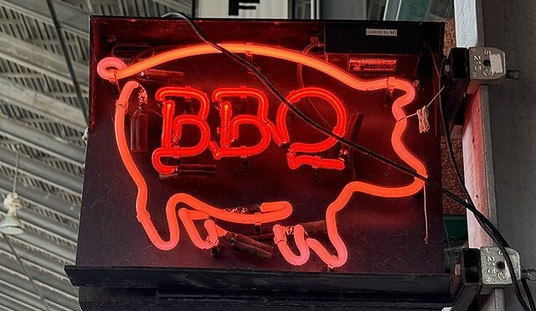During the Second Naval Battle of Guadalcanal two battleship task forces entered Ironbottom Sound unaware of what they would find. One consisted of battlecruiser Kirishima, heavy cruisers Atago and Takao, light cruisers Nagara and Sendai, and nine destroyers. The other consisted of battleships Washington and South Dakota and four destroyers. The US force should have been superior. But all of a sudden the US force was halved in strength by an unforced error. “South Dakota suddenly suffered a series of electrical failures, reportedly during repairs when her chief engineer locked down a circuit breaker in violation of safety procedures, causing her circuits repeatedly to go into series, making her radar, radios, and most of her gun batteries inoperable.” Navsource Online describes how the ship recovered.
William A.Hughes wrote how a ship mate, may have saved his ship (South Dakota). … Someone panicked, he wrote, either the switchboard operator or one of the Engineering Officer’s who were stationed at # 3 Engine Room. Orders were given to close the bus-ties between # 4 and # 3 switchboards and this knocked off # 3 switchboard which in turn closed it’s bus-ties to # 2 switchboard and # 2 went off the line. (A bus-tie is a circuit breaker that ties two or more switchboards). No one, but my Chief, Hughes wrote, realized what was happening and how to cure the problem. Against direct orders he ordered to hold the bus-ties to # 2 switchboard open, so that the other three switchboards could not tie in.
“If I had let them tie in, he wrote, we would have lost our power, leaving the ship with a total loss of power and would have ended up dead in the water and at the mercy of the enemy. The Chief then told the ensign to tell the Chief Engineer to clear the problem of # 4 switchboard and then he would allow Hughes to close the bus-ties and restore power back to the ship. That Chief never got credit for saving the lives of the crew and the ship.
As it happened, the US fleet was saved by diversification. The USS Washington, unafflicted by the South Dakota’s problems, sank the Kirishima with consecutive 16 inch gun salvos. Sometimes systems are firewalled so they can’t contaminate each other and in this case the ultimate firewall was having a whole other battleship. But bankers contemplating the catastrophe overtaking Italy and Spain on the bondmarkets have got a different idea. The problem with Italy and Spain, they argue is that it isn’t tied to one huge untrippable, invincible circuit. Paul De Grauwe argues in the Financial Times that if Italy and Spain could lean on this unbreakable wall then all would be well:
If one bank experiences a solvency problem, deposit holders start doubting the solvency of their own bank, and run to convert their deposits into cash. When everybody does this at the same time the banks will not have enough cash. This banking system instability was solved by mandating the central bank to be a lender of last resort – and the neat thing about this solution is that, when deposit holders are confident that it exists, it rarely has to be used.
The problem faced by the member countries of a monetary union such as the eurozone is exactly the same. Therefore, the solution is the same. Contagion between sovereign bond markets can only be stopped if there is a central bank willing to be lender of last resort. The only institution able to perform this role is the ECB. … At the same time, further steps towards political unification must be taken, without which control on national government deficits and debts cannot be implemented.
And the ECB can never suffer the fate of the South Dakota’s electrical system because it can print money. You can’t blow it out. David McWilliams explains why that is. If the ECB loses money by holding Greek bonds it can just make up the difference by creating assets out of thin air. Neat huh?
The ECB now finds itself holding nearly €300 billion of ‘assets’ from Greece, Ireland and Portugal. But the assets are not worth €300 billion. … This would be extremely worrying if it were a bank, but of course it is not a bank in the normally understood meaning of the word. It is a central bank and this means there is one important difference. The ECB does not have to ‘earn’ money to have money – it can simply print it.
So, let’s play out a scenario. The Greeks default. This means that the ECB has to take a loss on its ‘balance sheet’ of €50 billion. For a normal bank, this would mean the bank would be bust. But the ECB’s balance sheet is a strange beast. The ECB makes its balance sheet balance, not the other way round.
By this, I mean the ECB looks at its liabilities and creates assets to match. It really is that simple. So if the ECB finds itself taking a €50 billion loss, it can go to its member central banks and ask them to get the money from their governments. Or it can write €50 billion into the assets side of its balance sheet and bother nobody about the loss.
This is what Ben Bernanke, chairman of the Federal Reserve, has done in the US – and the world hasn’t ended there. It is what the ECB should do here, and you can bet that the world won’t end here either.
Armed with the godlike power to print money, the lender of last resort can keep things going indefinitely. Or can it? The problem with “lenders of last resort” is they engender moral hazard. And moral hazard can ultimately destroy even a lender of last resort. The printing press didn’t save Zimbabwe. It inflated its currency into nothingness. This is known as “moral hazard”.
Critics of the backing of institutions point to the ability of having a lender of last resort as a temptation for an institution to take on more risk. A lender of last resort provides a safety net to insulate the institution from the full consequences of their risk. The lender does not underwrite the consequences but it could be that business failure can be hidden for longer by the extension of credit. …
A … critique of the International Monetary Fund as the international lender of last resort is that it is effectively an inefficient subsidy system, since it is mandated to provide loans to countries unable to raise funds through the bond market, with loans paying below market interest rates. Critics say that this has two deficiencies as a means of charity: one, it confuses the ability to repay with the economic reorganization demanded by the bank and other ethical considerations; and two, the fact that some countries actually do repay their loans, despite the hardship of paying and the reality that most developing nations are not expected to do so.
A “lender of last resort” cannot automatically save a system unless somebody can be counted on to rein in the printing presses. There has to be a provider against moral hazard for it to work. This is why Paul De Grauwe notes that in exchange for salvation by the ECB, the wastrel countries of Europe will have to surrender their sovereignty to adults, something he describes as “further steps towards political unification must be taken, without which control on national government deficits and debts cannot be implemented”.
In a system which can print money steps must be taken to limit who can talk about printing it. That circumstance may explain why both Democratic and Republican senators asked the President to leave the room when they were negotiating how much money the Federal Government should lend itself. According to the Hill:
GOP aides and lawmakers, speaking on background, portrayed Boehner as the calm negotiator who repeatedly exasperated President Obama.
Boehner last month asked the networks to televise his response to Obama’s address to the nation, a request which infuriated the White House, Republican sources said.
On July 23, they claim, the White House called Minority Leader Nancy Pelosi (D-Calif.), telling her not to participate on a call with Boehner, Senate Majority Leader Harry Reid (D-Nev.) and Senate Minority Leader Mitch McConnell (R-Ky.). Pelosi informed Reid, who declined to participate, and the call was canceled, the Republican sources said. (A Pelosi spokesman could not be reached for comment.)
Later that day, the four leaders met with Obama at the White House. At one point, GOP officials said, the Democratic and Republican leaders asked Obama and his aides to leave the room to let them negotiate.
It was an extraordinary scene in which a political process asked the President was asked to leave room in the White House so they could talk about money more sanely than with him present. They needed him out of the way the manage the moral hazard problem. It is probably the same logic which has driven both the House and the Senate to keep in “pro forma” session simply so the President can’t appoint someone during the legislative recess. The Politico notes:
Following the House, the Senate will hold a series of “pro forma” sessions over the next month, effectively blocking President Barack Obama from making any appointments during Congress’ August recess.
That means Obama won’t be able to seat his pick to lead the new Consumer Financial Protection Bureau, former Ohio Attorney General Richard Cordray, whose nomination Republicans have vowed to oppose until Obama makes changes watering down the agency’s authority.
After passing the debt limit legislation on Monday, House leaders announced they would hold pro forma sessions through August, a procedural move that forced the Senate to follow suit. The Constitution requires that for either chamber to take more than a three-day break, the other chamber must give its approval.
You would think — and that includes members of the Democratic Party — they didn’t trust him. And maybe they don’t. So to save their skins, which they will preserve at all events, they occasionally have to be serious and act semi-rationally. If that means asking the President to take a hike, then so be it, even for Democrats.
When immense power is vested in an institution like the EU or the Federal Government; when they can print money and do other impossible things to order then the only remaining check against moral hazard is the efficacy of the political system. In other words, you have to rely on an anonymous Chief Electrician to balk and refuse the final act which will melt down the system. Any system with no formal limits on its power can be restrained only by the judgment of an individual or individuals who will do what the system, left to itself, cannot.
The other alternative of course, is to apply a system of checks and balances and to assume that any system too big to fail will eventually do so. That’s why the Founders split things up. When absolutism is created within a democratic system and is constrained only by reliance on arbitrary action then the democratic system of government itself is wired up to melt down. Maybe it’s just like it was in the Forbidden Planet.
Morbius, what is the Id?
My daughter is planning a very foolish action, and she’ll be terribly punished.
– What is the Id?
– Id! Id! Id!
It’s an obsolete term…
I’m afraid, once used to describe the elementary basis of the subconscious mind.
Monsters from the Id.
Monsters from the subconscious.
Of course. That’s what Doc meant. The big machine… cubic miles of Klystron relays… enough power for a whole population of creative geniuses…operated by remote control. Morbius, operated by the electromagnetic impulses.of individual Krell brains.
To what purpose?
In return, that machine would instantaneously project solid matter… to any point on the planet, in any shape or color they might imagine for any purpose, Morbius! Creation by mere thought.
Why haven’t I seen this all along?
Like you, the Krell forgot one deadly danger… their own subconscious hate and lust for destruction. The beast. The mindless primitive. Even the Krell must have evolved from that beginning.
And so those mindless beasts of the subconscious had access to a machine that could never be shut down.
The secret devil of every soul on the planet all set free at once to loot and maim and take revenge and kill!
My poor Krell!
After a million years of shining sanity they could hardly have understood what power was destroying them.
“No Way In” print and Kindle edition at Amazon
Tip Jar or Subscribe for $5










Join the conversation as a VIP Member